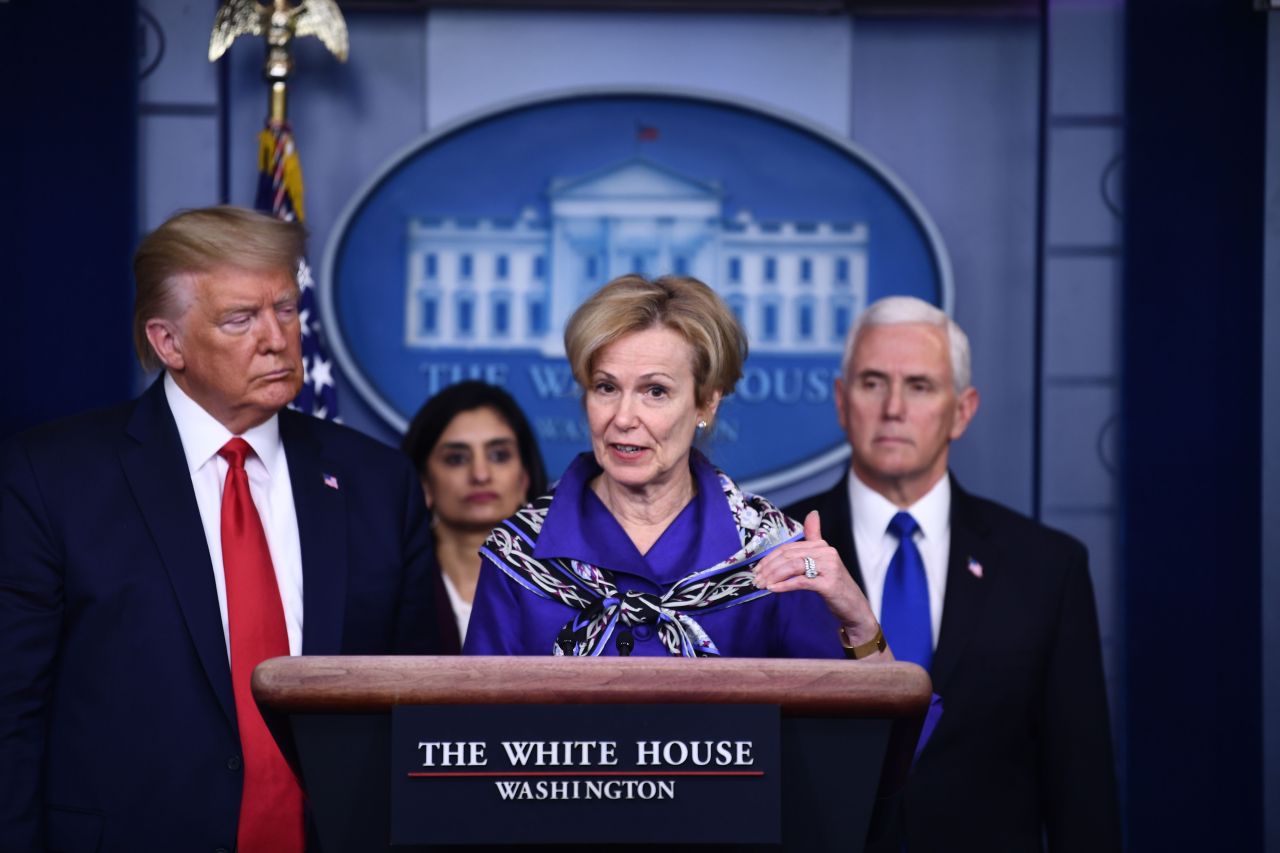White House task force sees S. Korea at end of epidemic curve
By YonhapPublished : March 19, 2020 - 08:59

WASHINGTON -- The White House coronavirus task force said Wednesday it is seeing South Korea and China at the far end of their epidemic curves and studying the two countries to predict patterns in the United States.
Dr. Deborah Birx, the coordinator of the task force, offered the assessment during a press briefing at the White House. Moments earlier, President Donald Trump said he was invoking the Defense Production Act, which would give him authority to get industries to increase output of medical supplies to fight the coronavirus pandemic.
The law was established in 1950 to meet production demands during the 1950-53 Korean War.
Asked to explain the administration's stronger response to the outbreak in recent days, Birx suggested that tough measures adopted in China and South Korea helped to slow the spread of the virus.
"We look at data all the time ... And when you look at China and South Korea data, and you look what China and South Korea did, you can see that their curves are not only blunted outside of Wuhan. So the Chinese areas outside of Wuhan, blunted curve; and South Korea, blunted curve," she said. "If you look at their curve today, they're already on the far end of their epidemic curve."
South Korea's Centers for Disease Control and Prevention on Wednesday reported 93 new cases, marking the fourth straight day that daily new infections were in double digits. The nation's total caseload increased to 8,413, with 84 deaths.
Latest figures from the US CDC put the number of cases across the country at 7,038, with 97 deaths.
Birx said the virus hit the US later than China and South Korea, making it difficult to say with certainty that the outbreak is seasonal.
"All we can do is look at the past to inform the future," she said. "Look at the curve in China and look at the curve in South Korea. Those curves were accomplished in still the winter season.
And so we're trying to understand what those relationships are.
"But that is a November to April. We all started later," she added. "And so you're asking me to predict based on a later start and that's what we're trying to really look at China and South Korea to really inform that."
Birx was appointed to the role by Vice President Mike Pence last month. A medical doctor, she has served as the State Department's global AIDS coordinator since 2014. During her three-decade-long career, she has focused on HIV/AIDS immunology, vaccine research and global health, according to the department. (Yonhap)




![[Herald Interview] 'Amid aging population, Korea to invite more young professionals from overseas'](http://res.heraldm.com/phpwas/restmb_idxmake.php?idx=644&simg=/content/image/2024/04/24/20240424050844_0.jpg&u=20240424200058)












![[KH Explains] Korean shipbuilding stocks rally: Real growth or bubble?](http://res.heraldm.com/phpwas/restmb_idxmake.php?idx=652&simg=/content/image/2024/04/25/20240425050656_0.jpg&u=)

